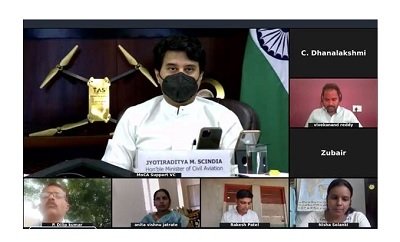Garuda Aerospace secures orders for 500 kisan drones under NaMo drone Didi initiative
Garuda Aerospace’s Kisan drones can support with spraying of fertilisers and pesticides
Focused on positively impacting India’s agriculture sector, Garuda Aerospace continues to expand its market share through partnerships and collaboration. Supporting Prime Minister, Narendra Modi’s visionary initiative to empower women-led Self Help Groups (SHGs), Garuda Aerospace announces that it has secured an order of a total of 500 Garuda Kisan Drones from 10 leading fertiliser companies under the NaMo Drone Didi scheme. National Fertilisers Limited (NFL), Rashtriya Chemicals and Fertilisers (RCF), The Fertilisers and Chemicals Travancore (FACT), Hindustan Urvarak & Rasayan Limited (HURL), KRIBHCO Fertilisers, Gujarat State Fertilisers & Chemicals (GSFC), Brahmaputra Valley Fertiliser Corporation (BVFCL), Matix Fertilisers & Chemicals, Paradeep Phosphates (PPL) and Mangalore Chemicals and Fertilisers (MCF) are the 10 companies which have placed an order for Garuda Aerospace’s Kisan drones under the scheme.
Garuda Aerospace’s Kisan drones can support with spraying of fertilisers and pesticides. Given its precision capabilities, Kisan drones can reduce the quantity of pesticides used in addition to eliminating long exposures to harmful chemicals. Kisan drones are equipped with AI, ML and GPS sensors to help farmers with accurate and real-time information about their crops and farms. The drones also reduce the use of water and are equipped to cover large farming areas in a relatively shorter time. Garuda Kisan Drones can help increase crop yield by 60 per cent and reduce loss of crop by 20 per cent.
Garuda Aerospace’s Kisan drones can support with








